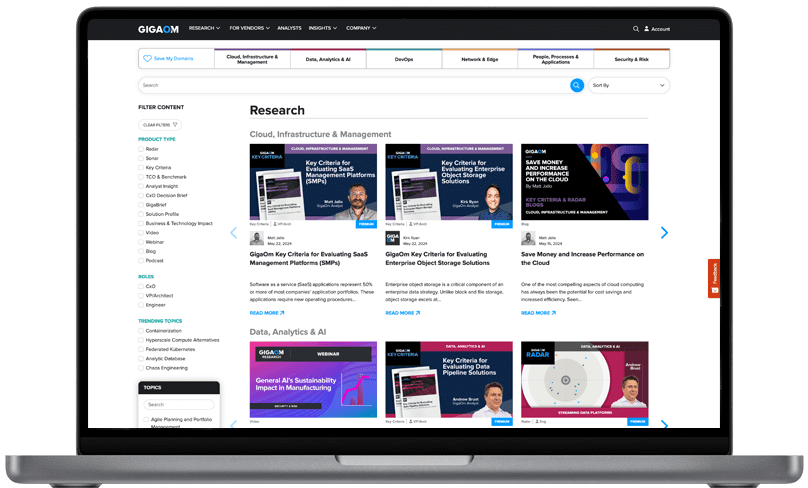Table of Contents
- Summary
- About the Vendor Profile
- Key Criteria Analysis
- Evaluation Metrics Analysis
- Bottom line
- About GigaOm
- Copyright
1. Summary
HYCU provides an innovative approach to data protection, combining efficiency and ease of use thanks to a set of purpose-built, specifically designed tools integrated skillfully with the environments they protect. This integration enables users to operate in a friendly and familiar environment that looks like an extension of their virtualization or cloud platform of choice. The solution is completed by a SaaS-based management platform, HYCU Protégé, that offers cross-platform data analytics, management, migration and disaster recovery services.
Market Positioning
HYCU is growing quickly both in terms of customers and installations. Thanks to its modular design, the solution is appealing to small and large users alike. Small organizations and departments of large enterprises benefit from the simplicity and ease of use of the purpose-built solutions, while larger entities can use Protégé to enable a comprehensive infrastructure view and advanced data management capabilities. HYCU solutions also appeal to Internet and managed service providers, thanks to its multi-tenant architecture.
HYCU solutions offer good overall total cost of ownership (TCO) and return on investment (ROI) compared to other solutions in the space. While focused mainly on virtualized and cloud infrastructures, HYCU supports the ability to protect physical servers. However, HYCU does not support legacy applications and OSes (such as old Unix operating systems).
Deployment Model
HYCU purpose-built data protection solutions are focused primarily on virtualized (VMware and Nutanix) and cloud infrastructures (Google Cloud, Microsoft Azure, and soon Amazon AWS). They are deployed directly next to the environment they protect, typically as virtualized, physical or hyper-converged infrastructure, or as a SaaS service directly from the cloud provider’s marketplace.
The separation that HYCU imposes between purpose-built data protection and data management contributes to a lower barrier of entry for small organizations, which usually don’t need sophisticated data management capabilities.
